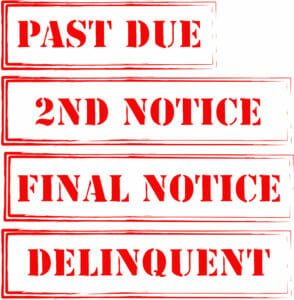Substance abuse billing is a complicated process and mistakes can be costly. substance abuse billing is triggering drug and alcohol addiction treatment centers to constantly battle insurance companies for reimbursements. Billing consultants and third-party billing companies can be beneficial to maximize results and get payments quickly. Health insurance claims for substance abuse are often delayed by the health insurance provider. Many behavioral health providers account receivables get out of control very quickly. It is a constant struggle for addiction treatment centers and detox facilities. If this isn’t difficult enough, some insurance companies send payment directly to the patient.
Substance Abuse Billing; It’s Possible to Get Paid in 14-Days
From drug rehabs Los Angeles to West Palm Beach getting paid in behavioral health care is a daunting task for many providers and substance abuse billing companies. Billing companies usually take the low hanging fruit from common mistakes made by recovery centers in-house billing or the previous billing companies mistakes. After this, this real work of recapturing lost revenue or getting paid quickly is a difficult task.

Many treatment centers could save large amounts in their substance abuse billing by outsourcing. With proper guidance they could get better reimbursements by doing the behavioral health billing in-house. Many are unaware and need to look closely to recapture operating cash.
Good substance abuse billing reqiures completely understanding the insurance companies and establishing relationships is the key to getting paid. substance abuse billing is a key area for many centers to address. We found this so important, that we invited Advance Data Systems Corp and two other billing related organization to be panelists at our next addiction conference.
Addiction Conference Educates on Business and Marketing Pain Points
You can learn more about increasing your substance abuse billing, cash flow, proven business, and marketing strategies at this LinkedIn profile. Eric Yorlano is one of the nations most sought after revenue cycle management professionals. He has been a conference favorite at Behavioral Health Network Resources addiction executive conferences. These events focus on the business side of behavioral Health. If you need to cut costs, gain revenue, dominate with social media marketing and get on page one of Google for key search terms this is the event for you. This addiction conference is focusing on LinkedIn, SEO, and substance abuse billing, CRM, and revenue cycle management.
Our key thought leader panelists have presented on Substance Abuse Billing | Revenue Cycle Management. From these conferences we have learned ways for drug and alcohol addiction treatment centers to recoup lost substance abuse billing revenue. you will learn how to get back lost reveniue cycle management dollars and maximize on future billing revenue.
Insurance Companies Are Bullying Behavioral Health Providers
Addiction treatment centers, opiate detox’s and third-party substance abuse billing companies work hard on efficient billing, billing procedures and utilization review. One mistake could cost upwards of $30,000. Obtaining the knowledge to prevent these costly mistakes is paramount. Behavioral health organizations can generate revenue in three different ways. They must play critical attention to their billing, collections, and drug rehab marketing strategies.

The drug and alcohol addiction treatment providers are constantly fighting Goliath to get their substance abuse billing reimbursements for services provided. Insurance providers are constantly seeking ways to cut monies they have to pay out. The insurance companies are also battling fraudulent healthcare providers submitting inflated clinical documentation, services not provided and excessive services. This has caused severe problems for ethical operators. They have to be faster and stronger to keep up with the changes occurring in behavioral healthcare.

Pay 2 Patient Collections
We also recently sat down with Dale Redlich, Co-founder of Pay 2 Patient LLC, to investigate other costly substance abuse billing issues that centers face. We found that some substance abuse providers have millions of dollars in uncollected claims. This situation arises due to lack of knowledge of some insurance policies and proven strategies to obtain the insurance payment. This is what he had to say.
Treatment providers often start treating clients are unaware of how much the insurance companies will pay. Even with their substance abuse billing experience sometimes the payment for services is sent from the insurance company directly to their client. Usually by the time the treatment providers realizes this, it is too late. They have no idea on how to effectively get this payment and generally never do.
To begin with, Out of Network (OON) substance abuse billing claims are usually more costly to the insurance carrier and to the patient. As a mechanism to encourage participation in its network (certain laws mandate this to happen) in network carriers will issue payment directly to the provider on behalf of the patient. However, some carriers do not extend this outcome to non-participating or OON providers.
Rather than pay the non-participating provider directly some carriers (Empire and Federal BCBS in Florida) issue payment directly to the patient.; the reimbursement check is made payable to the patient not to the service provider. This can disrupt the provider’s cash flow and this creates the Pay 2 Patient circumstance. This usually occurs when the insured does not execute the assignment of benefits and attest to it.
Providers become understandably confused about how this could happen. Consider the provider’s substance abuse billing staff and admission staff has had the patient execute all the correct authorizations. They verified the assignment of benefit (AOB) at the time of admission. Most providers think that if all such documentation is executed by the patient that checks will be sent to their office. For many providers, the assignment from the patient is unlikely to be honored by the carrier and its check will be sent to the patient anyway. This comes as a surprise to many providers who expect to receive the check from the carrier so long as it has a valid attested assignment of benefits.

Substance Abuse Billing Can Have Millions in Receivables and Not Know It
Substance abuse billing is more complicated than it seams. This is when the problem becomes acute and financially damages the providers anticipated cash flow. This is because it’s extremely difficult for the provider to recover such insurance payments from the patient who has already received the check. Many times the client has cashed it and possibly spent the money. Obviously, the practice of issuing checks directly to patients instead of the provider has greatly impacted the cash flow of many providers. Florida drug rehabs West Palm Beach should make sure that the insured also executes an AOB and attests to it
Florida’s controlling law in this area is Florida Statute 627.638 in which it states;
- Section (1) that an insurance contract “may” allow the carrier to send substance abuse billing payment directly to the provider of services if such directive is contained within the policy using appropriate language and there is an attested authorization of benefits from the insured.
- Section (2) of this law it is clear that the duty to pay the provider exists when the insured and not just the patient has signed the AOB and attested to it
Benefits of Insurance Companies to Pay the Client Directly

It is important to note that some states like NJ, TX, CO, NV, and others have enacted substance abuse billing laws which protect the provider. these laws are in place whether such is in network or OON. A very few other States have also passed similar “mandatory assignment of benefits” laws which protect providers. But, only a handful of States have passed such laws. In such states, the law basically says that if an AOB is executed to their provider. They are subject to certain rules, the carrier must send payment to the provider, not the patient.
Properly Handling Empire and Federal BCBS Insurance Policies with Substance Abuse Billing
Substance abuse billing with Empire and Federal BCBS is tricky. If a patient is admitted on an OON basis and the client has certain insurance such as Empire or BCBS Federal and the insured does not sign the AOB (assignment of benefits) there is a distinct possibility that when it comes time for payment of the providers fees the check from these carriers might go directly to the patient.
Of course, many substance abuse billing providers in this circumstance do try to be prudent and educate them by informing them that the insured needs to sign the AOB. However, if the insurance check is sent directly to the patient their obligation is to immediately endorse the check to their provider in payment of the fees for service. But, many clients who receive the insurance check after they are no longer in treatment keep the check and, cash it. Some clients go to multiple treatment centers to try to play this game to the fullest extent. This is the dangerous result of pay 2 patient.
Remember that in states like Florida when the provider has an assignment of benefits document that needs to be used for substance abuse billing. It’s in the file signed only by the patient there is no actual legal protection against the carrier paying the patient directly. Finally, when and if a third party reimbursement check is sent by the carrier directly to the patient most providers and billing companies lack the resources, time or expertise to “chase” the patient for a return of the insurance check.
Substance Abuse Billing #1 Costly Mistake Chasing the Reimbursement Check






